Recently, when you enter the kitchen or bathroom you notice bad odors from the sink drain or water. Thinking alone about ‘why does my sink smell like rotten egg or sulfur’ there are no reasons found.
Don’t worry, this is not as frustrating as you think, but you can’t ignore it. The culprit behind the smell is usually hydrogen sulfide gas, produced by bacteria in the drain or plumbing. This happens when food particles or grease clog the pipes or stay for a long time on the P-trap.
In this blog, I will provide 7 causes and 7 ways to remove these unpleasant smells from the kitchen.
Let’s get started!
7 Reasons Why Does Your Kitchen Sink Drain Smell Like Rotten Eggs or Sulfur
Rotten egg odor on your kitchen sink is not just unpleasant—it’s a sign something’s wrong. Whether it’s a minor buildup or a more serious plumbing issue, identifying the cause is key to solving the problem. Here are 7 common reasons for this smell and practical ways to address them:
1. Clogged Sink Drain
A clogged sink drain traps food particles, grease, and debris. Over time, these decompose and produce hydrogen sulfide gas, leading to a rotten egg smell. The blockage also slows water flow, making it harder to wash away waste. So, inspect whether your drain/sink water flow is normal or slow. If it is slower than a normal day, the odors could from here.
2. Unused Drain for a Long Time
When a kitchen sink drain isn’t used for an extended period, the water in the P-trap vapor. This allows sewer gases to escape into your kitchen, creating a sulfur-like smell. If you haven’t used the sink for a long time, it could smell like rotten eggs or sulfur from the P-trap.
3. Leftover Food or Grease Build-up on the Drain
Food scraps and grease often stick to the walls of your drain and pipe, forming a residue over time. Bacteria thrive on this buildup, releasing a foul sulfur or rotten eggs odor. So, your leftover foods could be the culprit of your bad odors in the sink drain.
4. Bacteria on the P-trap
The P-trap is a U-shaped pipe designed to hold water and block sewer gases. However, it can become a breeding ground for bacteria when organic waste accumulates. These bacteria produce hydrogen sulfide gas, which smells like rotten eggs.
5. Issues with the Sewer Line
A damaged or blocked sewer line can allow foul gases to back up into your sink drain. This issue often requires professional plumbing assistance to locate and fix the problem. Sewer line issues can lead to more severe plumbing problems, so it’s essential to address them quickly.
6. Blocked Plumbing Vent
Plumbing vents release air from your drainage system to prevent pressure buildup and odors. When the vent becomes blocked by debris or leaves, it disrupts airflow and traps sewer gases in your pipes. It can be a reason for bad odor in the kitchen sink.
7. Sulfur in Your Water Supply
If the smell persists even after cleaning the drain, your water supply might be the culprit. Sulfur or hydrogen sulfide in the water creates a rotten egg odor. So, check the water quality and its smell whether it is okay or if odors come from the water itself.
Tackling these issues head-on can get rid of the kitchen sink that smells like rotten eggs. Regular use of the sink, proper disposal of food scraps, cleaning the garbage disposal, ensuring a functioning P-trap, and checking and maintaining the plumbing vent can all contribute to banishing the rotten egg smell for good.
What to Do When Your Sink Smells Like Rotten Egg
Dealing with a kitchen sink drain that odor of rotten eggs can be quite an unpleasant experience. Fortunately, there are several effective ways you can do this. When your sink drain smells like a rotten egg, restore your kitchen’s fresh atmosphere.
Flush the Offending Drain with Water
Sometimes, a dry P-trap could be the cause of the issue. Run water down the drain to refill the P-trap and create a barrier against sewer gases. This simple step might drop the smell. Also, remember to:
- Clean Your Sink: Regular cleaning can go a long way in preventing odors. Try these methods:
- Lemon Slices: Toss lemon slices down the drain and run hot water. The citrusy scent can help mask unpleasant odors.
Check for Dirty Plumbing Vents
A clogged or obstructed plumbing vent can trap foul-smelling gases. Inspect the vent on your roof and ensure it’s clear of debris to allow proper ventilation and prevent odors from backing up into your drains.
If the smell persists, don’t worry, there are many ways to remove the bad odors from the kitchen sink drain.
7 Steps to Get Rid of Sulfur or Rotten Egg Smells in the Sink Drain
Here are 7 steps to clean your kitchen sink drain and get back a fresh and pleasant kitchen. I’m confident that you don’t need to try all these steps, after trying 1/2 methods, you will have a well and fresh kitchen sink without any bad odors.
1. Flush the Drain with Hot Water and Dish Soap
Hot water loosens grease, while dish soap cuts through oils and residues stuck in the pipes. This simple yet effective method helps flush away odor-causing particles and kills bacteria.
- Boil water and mix with dish soap.
- Pour the mixture down the drain slowly.
- If it can remove the odors, you can repeat them weekly for maintenance.
I often pour leftover hot water with dish soap to maintain a clean and functioning kitchen sink drain.
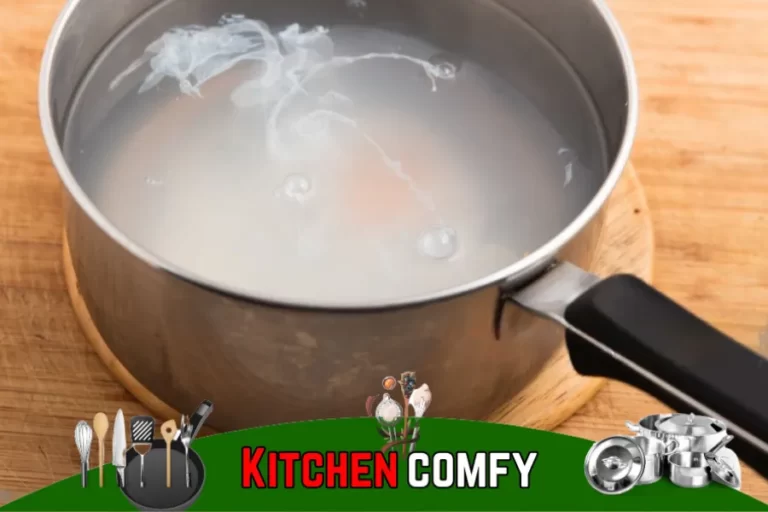
2. Clean the P-Trap
Regular cleaning keeps the P-trap clear and ensures it functions properly. Follow these 3 steps to remove the odors from the P-trap.
- Remove the P-trap under the sink.
- Scrub it with warm, soapy water.
- Reattach it securely to prevent leaks.
3. Vinegar and Baking Soda to Solve
A mix of vinegar and baking soda creates a fizzy reaction that cleans drains and neutralizes unpleasant odors. This method breaks down grease, dissolves residue, and eliminates odor-causing bacteria naturally. It’s an eco-friendly and cost-effective solution for maintaining fresh drains.
- Pour 1 cup of baking soda down the drain.
- Follow with 1 cup of vinegar and let it fizz for 10-15 minutes.
- Flush with hot water to clear the buildup.
4. Check and Clear the Vent Pipes
Blocked vent pipes trap sewer gases, which can seep into your sink. You can remove these odors by following these 3 simple steps below:
- Inspect the vent pipes for obstructions, such as debris, leaves, or nests.
- Use a plumber’s snake or hose to clear debris.
- Ensure vents are free for proper airflow.
5. Ice Cubes, Salt, and Half a Lemon
Garbage disposals can trap food particles and develop odors. Blending ice cubes and salt helps scrub the interior, removing buildup from the blades and walls. Adding half a lemon freshens the disposal with a natural citrus scent.
- Add a handful of ice cubes mixer and coarse salt to the disposal.
- Grind them to scrub the interior.
- Follow with half a lemon for a fresh scent.

6. Use a Drain Cleaner Like Bio Enzyme
Bio-enzyme drain cleaners are made to break down things like grease and food scraps in your drain without damaging the pipes. These cleaners remove odor-causing bacteria and keep your plumbing system in good condition.
- Pour the recommended amount into the drain.
- Let it sit overnight to dissolve debris.
- Rinse with warm water in the morning.
7. Inspect the Water Supply if the Odors Come From Itself
Sometimes, the smell doesn’t come from the drain but from the water itself. Sulfur or hydrogen sulfide in your water can produce a rotten egg odor. Testing and treating your water ensures that it’s safe and free from unpleasant smells.
- Test your water for contaminants.
- Install a water filter or contact a plumber.
- Treat your water supply to eliminate the odor source.
By following these steps, you can get rid of sulfur or rotten egg odors and keep your sink fresh and clean.
Is it Okay to Pour Bleach Down the Drain?
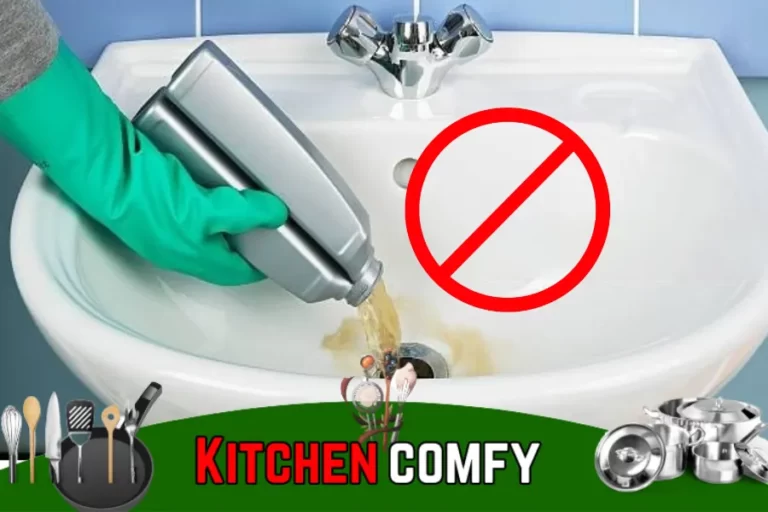
Pouring bleach down the drain might seem like a quick fix for odors or clogs, but it’s not always the best solution. While bleach can kill bacteria and remove smells temporarily, it doesn’t address the root cause of the problem, such as clogs or buildup in the pipes.
Bleach is also harsh on plumbing and can damage certain pipe materials over time. When mixed with other chemicals in the drain, it can release harmful fumes, posing health risks. It’s especially dangerous if combined with substances like vinegar or ammonia.
Instead of bleach, consider safer options like natural cleaners or enzymatic solutions. These are effective and won’t harm your pipes or health.
If No Methods Works!
If the smell doesn’t go away after trying all the methods, it’s time to call a plumber. The issue could be a deep clog, a damaged sewer line, or another hidden plumbing problem.
A professional plumber can check your system and fix anything causing the odor. They have the right tools to handle problems that DIY methods can’t solve.
If the smell is from your water, get it tested. It might have sulfur or hydrogen sulfide. A plumbing expert or local authority can suggest the best solution, like using a water filter or fixing the drain issue to remove the smell.
Related Posts:
Conclusion
You have reached the end of the “Why does your sink smell like rotten eggs or sulfur” blog. There are different reasons behind the odors of the bad smells in the kitchen.
Clogged sink drains, bacteria on the P-trap, leftover foods or grease building up on the drain, and blocked sewer vents are common causes. So, if you want to remove the rotten eggs or sulfur smells from the plumbing line, check and fix these issues by following the 7 steps I have provided above.
Remember, if the odors persist after trying all-natural solutions by yourself, you need to contact a plumber. A professional plumbing expert can address the reason after inspecting it by seeing it physically.
FAQs
Why Do My Drains Smell Eggy?
Your drains smell eggy because of bacteria build up on the P-trap or hydrogen sulfide gas. This gas is produced when bacteria break down organic matter, like food particles or grease, stuck in your pipes. It could also happen if the P-trap dries out or there’s an issue with your plumbing vent or sewer line.
How Do You Fix Rotten Egg Smell in Pipes?
You can fix the smell by cleaning your pipes. Start by pouring hot water mixed with dish soap down the drain. Use a mix of baking soda and vinegar to break down buildup, followed by flushing with hot water. If the smell persists, clean the P-trap or use an enzymatic drain cleaner.
What is the Cheapest Way to Remove Sulfur From Well Water?
The cheapest way to remove sulfur from well water is by using an activated carbon filter. It traps the sulfur and removes the smell. Another option is aerating the water to release the gas. For small amounts, adding a small amount of household hydrogen peroxide can also help.
Related Posts

JAKARIA is a seasoned expert in kitchen appliances and cooking techniques. With years of hands-on experience and in-depth knowledge, he has a knack for solving common kitchen appliance issues. He also offers expert guidance to help you achieve culinary success and create amazing meals effortlessly.
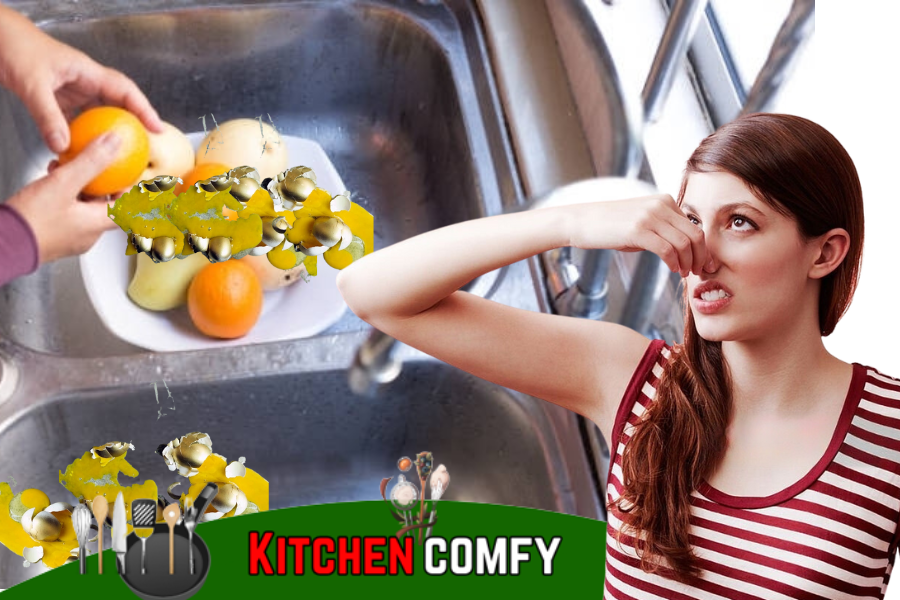
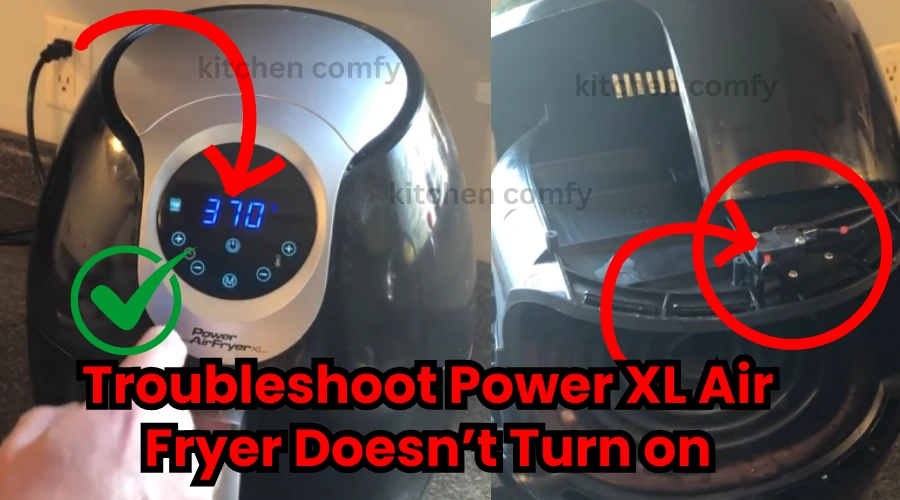
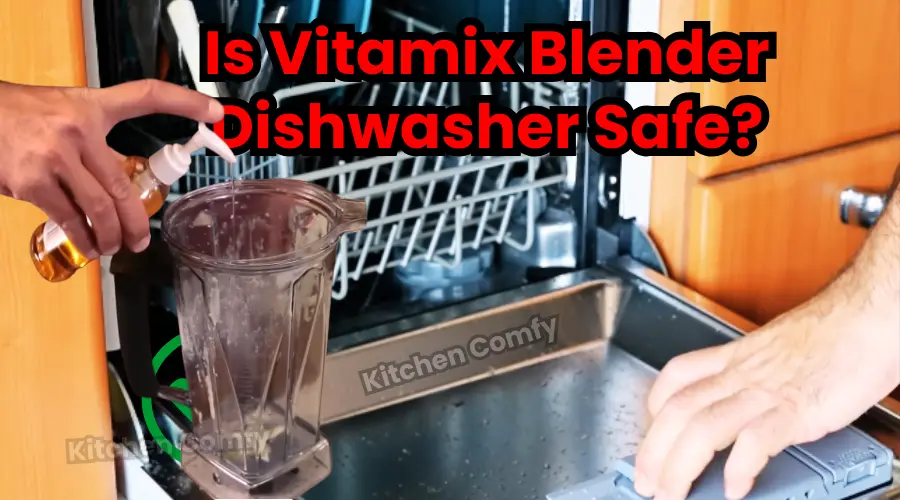
![Can You Put a Paper Plate in an Air Fryer – [Best Alternatives]](https://kitchencomfy.com/wp-content/uploads/2025/01/can-you-put-a-paper-plate-in-an-air-fryer.webp)
![6 Ways to Fix Ninja Creami Blade Not Going Down [Solved]](https://kitchencomfy.com/wp-content/uploads/2025/01/ninja-creami-blade-not-going-down.webp)